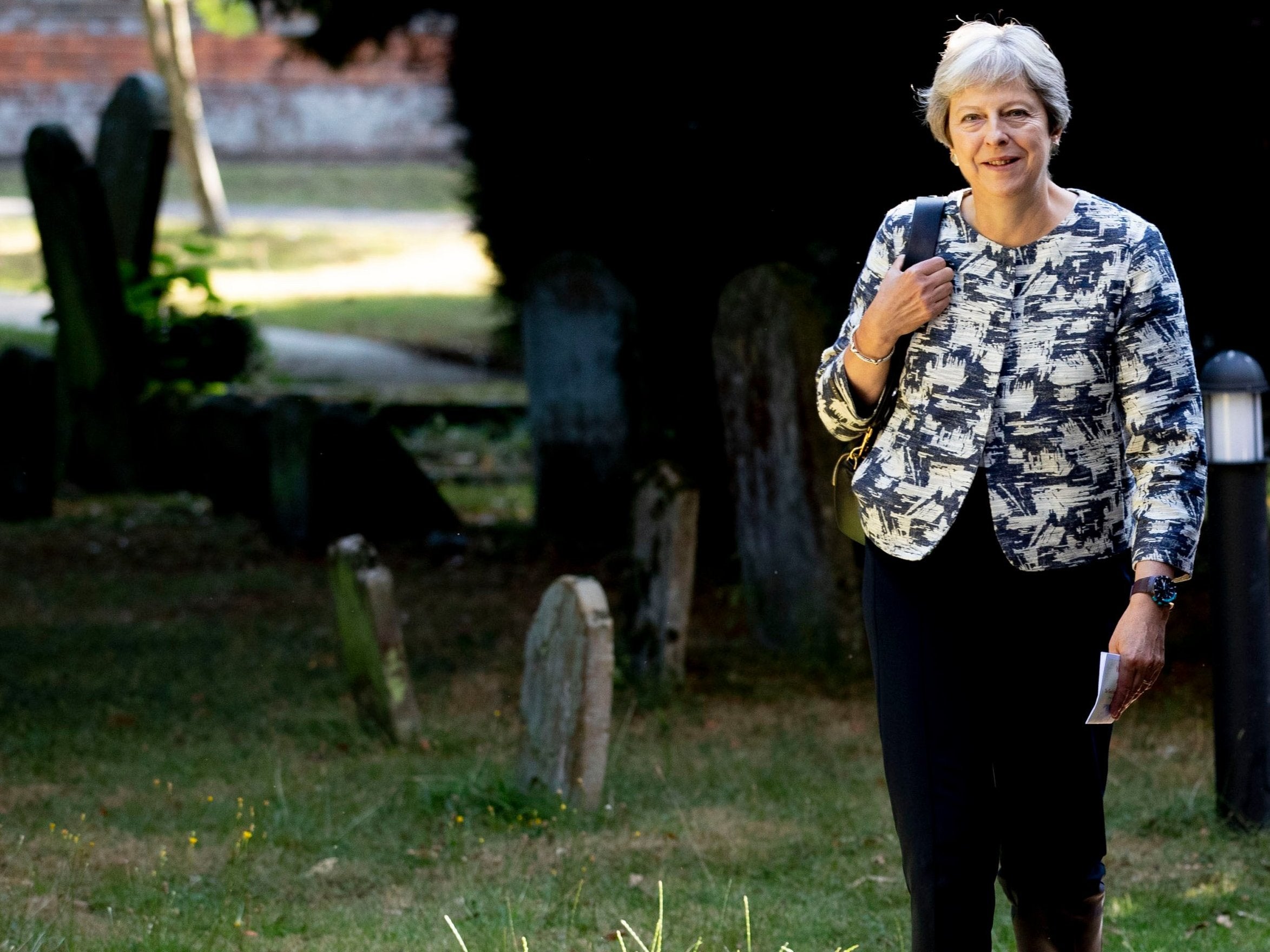The Independent's journalism is supported by our readers. When you purchase through links on our site, we may earn commission.
Will the spell of deadlocked politics be broken after Brexit?
A poll this week found 60 per cent agreed with the statement, ‘Right now, I no longer care how or when we leave the European Union, I just want it all over and done with’


Your support helps us to tell the story
From reproductive rights to climate change to Big Tech, The Independent is on the ground when the story is developing. Whether it's investigating the financials of Elon Musk's pro-Trump PAC or producing our latest documentary, 'The A Word', which shines a light on the American women fighting for reproductive rights, we know how important it is to parse out the facts from the messaging.
At such a critical moment in US history, we need reporters on the ground. Your donation allows us to keep sending journalists to speak to both sides of the story.
The Independent is trusted by Americans across the entire political spectrum. And unlike many other quality news outlets, we choose not to lock Americans out of our reporting and analysis with paywalls. We believe quality journalism should be available to everyone, paid for by those who can afford it.
Your support makes all the difference.The last time Labour and the Conservatives were locked neck and neck in the opinion polls for so long was after the fall of Margaret Thatcher – or Market Thatcher, as a colleague mistyped this week – in November 1990.
For the next 16 months until the election in April 1992, the two main parties were level in the polls, usually with Labour just ahead. Just as, for the past 15 months, it seems the opinion polls, as if frozen in ice, have reflected the deadlocked result of the election – sometimes with the Tories just ahead, more recently with Labour a little ahead.
As ever, polls out of line with the average, such as YouGov’s showing a four-point Tory lead this week, gain an excessive amount of attention. We should be looking at the underlying trend and the striking thing is that there isn’t one. The averages of the polls have hardly moved.
As Tom Harris, the former Labour MP – and indeed former Labour Party member – said: “There’s been an eerie sense of the doldrums about British politics for a long time, almost as if everyone’s waiting with bated breath for some undefinable thing to happen and change everything.”
No one knows how the Brexit story is going to unfold. There could be a great crisis towards the end of this year if the negotiations fail. There have been hints of a deal emerging at a special summit in Salzburg in September, and it was notable that nothing leaked from Theresa May’s talks with Emmanuel Macron, the French president last week, but no one knows what will happen when real concessions have to be made.
And until it happens, most people don’t care. Despite Brexit being the dominant news story for two years now, a lot of people haven’t followed the details. That is why I don’t pay much attention to opinion polls finding vast reservoirs of disapproval for the way the prime minister has handled the negotiations. She’s a politician, isn’t she? Of course she’s useless. That’s what it says on the internet.
A poll that did catch the eye was from Deltapoll, the new outfit set up by Joe Twyman, formerly of YouGov. It found 60 per cent agreed with the statement: “Right now, I no longer care how or when we leave the European Union, I just want it all over and done with.”
Crisis or no crisis this autumn, what does still seem likely is that we will leave the EU in March. Then the spell will be broken and politics can go back to being about other things. In our present becalmed state, it seems as if all sorts of things will become possible, and one side or the other, or even a new centre party, might gain the upper hand in the struggle to be less despised by the voters.
After Brexit, the Conservatives could get rid of Theresa May and install a leader more capable of seeing off the eminently see-offable Jeremy Corbyn. After Brexit, Labour MPs could head off to join John Woodcock on the Independent Labour bench, once they can no longer be accused of wanting to thwart the will of the northern Labour Leave voter. After Brexit, the parties can devote full attention to the neglected priorities of the people.
Or maybe not. The glue that keeps May in office will be just as binding after 29 March. Most Conservative MPs would rather have her than anyone the Eurosceptic grassroots members of the party might choose in a leadership contest. And Europe will still be a live question. Even if there is a good Brexit deal, the precise terms of the trade relationship will be left to be negotiated during the transition period, currently pencilled in to last until the end of 2020.
As for a significant Labour breakaway or a new centre party, I will believe it when I see it. And, although it might be refreshing to see the two main parties competing over who has the best policies for the NHS or schools, it is not obvious that either side would gain a decisive advantage – neither did in 1990-92, after all.
Perhaps British politics will be deadlocked for years to come. And perhaps the next election will be 1992 all over again. A Labour leader, to whom the British people never really took, fighting his second election and losing unexpectedly to an underestimated Conservative prime minister.
Join our commenting forum
Join thought-provoking conversations, follow other Independent readers and see their replies
Comments